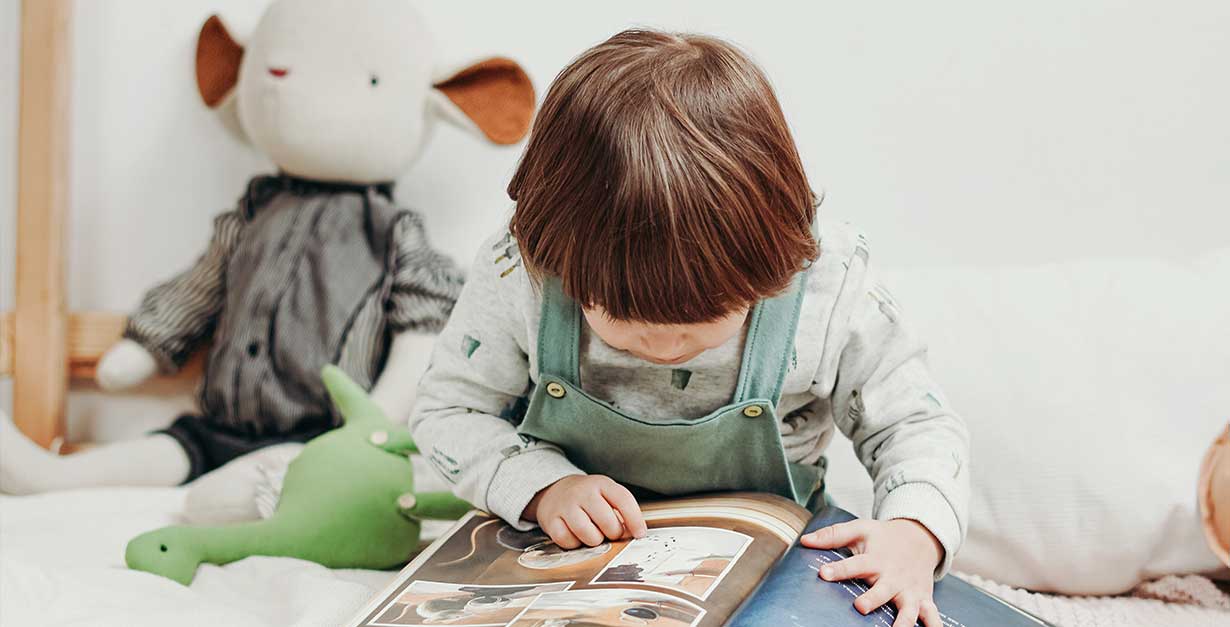Bedtime Routine for Toddlers — Soothing and Predictable
For toddlers and preschoolers, the bedtime routine can often be the most challenging part of the day. It means another transition and separation from you, at the same time that everyone in the household is a bit tired and sometimes frazzled from a long day, especially when you really just want to help your toddler sleep. A soothing bedtime routine for toddlers includes:
- A set bedtime
- Predictable routine
- Soothing activities
- Plenty of time
Create a Soothing and Predictable Bedtime Routine for Toddlers
Every parent knows that bedtime routines should be soothing and predictable for their child. Dr. Douglas Teti, a Professor of Human Development and Family Studies from Penn State recently published a finding about the importance of bedtime routines. He studied 35 parents with children under 2 years old. Granted, not a huge study but his findings were validating. Dr. Teti states that children sleep better when their emotional needs were met and they felt attached to their parents. In other words, the parents needed to be somewhat flexible in their routine (ie. mix it up with a puzzle one night instead of a book), responsive to their child’s needs at that particular moment and the parent’s words and actions should match their behavior. When parents are emotionally available their children feel more secure and safe and are able to going to sleep more easily.
Is your toddler sneaking out of bed?
Read: Getting Your Toddler to Stay in Bed at Bedtime and All Night Long
I always swore that if I was feeling a bit frazzled at bedtime or if I was in a rush at bedtime, my girls picked it up and the bedtime routine didn’t go as smoothly. Children are so intuitive! Without realizing it our children teach us to be in the moment and nowhere else!
Bedtime Routines for Toddlers – 6 Tips for Success
With all this being said, here are some helpful tips for making your child’s bedtime routine be smooth and sleep inducing:
- Bedtime preparations should be in her room (or perhaps the early stage can be in a younger sibling’s room), not all over the house. Include stories, songs, or games that soothe, not stimulate. Make sure the rules for how many stories, or how long you will read, are completely clear and nonnegotiable. Avoid wild, fast-moving games and scary stories.
- Leave plenty of time, at least a half hour, for her to unwind, and to get the attention from you she needs. If you rush it, she’ll be more likely to run out of bed or stall or beg you to staying longer.
- If two parents take turns at bedtime, you don’t have to follow an identical script but you should have a similar routine, style, and response to bedtime power plays, fears or manipulation.
- “Blame it on the clock”. If she starts bargaining for an even longer time with you, more stories or more songs, blame the clock. Calmly tell her the clock says you have to stop reading at 8:00p.m., so you have ten minutes. Then when its 8pm say “Oh, look! The clock says 8:00. Lights-out time. We can’t read any more books tonight. We’ll have to get upstairs earlier tomorrow night so that we can read more books.”
- It’s often a good idea to warn your children a minute or two before lights out:“We have a few more pages in this book, and then Mommy is going to turn out the light.” Sometimes they like to turn out the light themselves. It’s another way they can “own” bedtime.
- If your child doesn’t respond to the sight of numbers, you might try a clock radio or timer. “Oh, the music went on” or “Oh, the bell rang, it’s time for bed.” If the clock ploy doesn’t work, feel free to blame me! “It’s 8:00. The Sleep Lady says we have to turn out the lights now.”

Visualization in your Bedtime Routine for Toddlers
Visualization is a great tool for your bedtime routine for toddlers. Some children will say, “I can’t do it; I can’t put myself to sleep”. Explain that everyone has trouble going to sleep sometimes, even Mommy and Daddy. Teach them some simple relaxation techniques and creative visualization. Children have such wonderfully active imaginations, they are actually better at visualization than we are. They may not understand the word visualization, but they certainly get pretend and imagine. They can learn how to think relaxing thoughts at bedtime, how to close their eyes and imagine playing at the beach, building a snowman, taking a summer walk with their cousins in Vermont.
Good naps make for good nights. Need help with those?
Read: Baby Nap Basics for All Ages: Your Daytime Sleep Questions Answered
Have Children Use Their Imagination
Try to build on the images in their favorite illustrated book and have them imagine entering the book to play with the characters (as long as there are no scary themes). My own girls loved playing “in” Angelina Ballerina. The mouse house illustrations were so inviting and warm. Your children will come up with their own suggestions and will pleasantly surprise you with their creativity.
Deep relaxation techniques are integral in a good bedtime routine for toddlers. Have her relax her toes, her feet, her ankles, shins, knees, and so forth, all the way up her body. If you don’t want to do this yourself, you can play a relaxation CD.
Children also like applying their imaginations to a dream agenda. “Tonight I’ll dream about playing basketball.” Or “Tonight I will dream about building a sand castle.” Or “Tonight I will dream about being a beautiful ballerina.” It helps them feel more in control of what happens to them after they fall asleep, particularly if they are worried about having nightmares. My “Dream Cards” might help children feel in control of their dreams. The cards guide children through a progressive relaxation exercise and have several images for dream ideas such as a tree house, a beach scene, a field of flowers, and a rainbow. I based them on my experiences with creating dreams with my own daughters. My Dream Cards and lullaby MP3 download “Sweetest Dreams” are not available for sale on my website. You can buy them both for $29.95 by clicking here.




